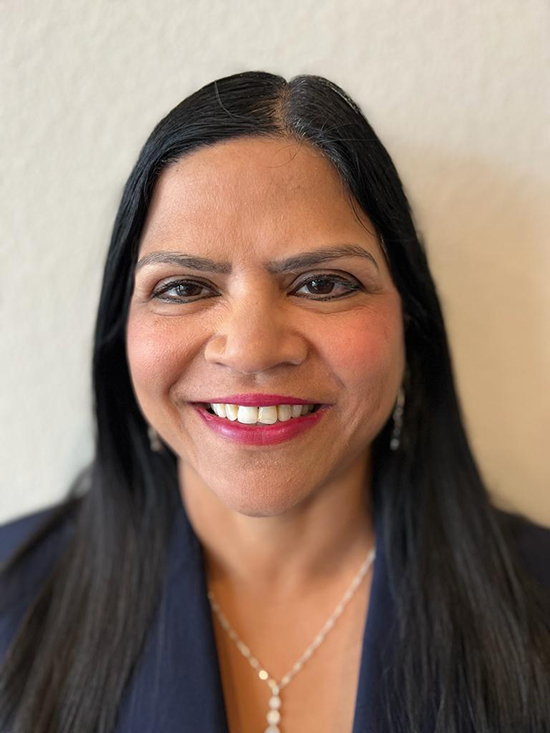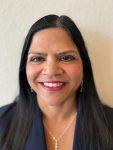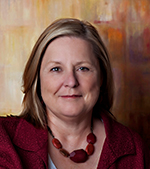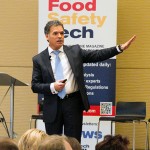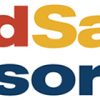As the global director of food safety and regulatory compliance at United Airlines, Vanessa Lindstrom is responsible for catering and lounges worldwide. When I first met Vanessa, I was impressed by her immediate confidence and positivity. During the conversation, she talked about the power of being positive, especially in today’s world and with the job functions we serve, and the importance of being resilient.
Vanessa was born and raised in Mumbai, India. She spent the first half of her career in the pharmaceutical industry and the second half in the food industry. The first job she got after earning her master’s degree was a management trainee position with a pharmaceutical company in the quality assurance department in India. From there, Vanessa moved to Australia and got a quality assurance position with a German multi-national pharmaceutical company. She always thought she would stay in the pharmaceutical industry—until she received a call from a headhunter for a position with Coca-Cola. The company gave her so many opportunities to learn and brought her to the United States to develop FSSC 22000 for a facility in California. Following this position, Vanessa had an opportunity to work for Ghirardelli Chocolate Company, where she was exposed to EU culture before she joined United Airlines.
Certainly, there were so many decisions and experiences gained with each opportunity. Vanessa’s advice is to believe in yourself and your capabilities, and to be willing to take risks. Nothing ventured, nothing gained. The phrase might sound easy, but it can be hard to execute.
Melody Ge: How would you describe the values that support your success and drive you through all the changes and decisions involved in working with different cultures?
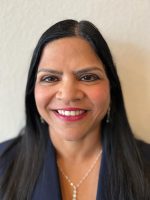
Vanessa Lindstrom: I would say being open minded, having a willingness to learn and staying authentic. No matter who you meet, you can’t be guarded. Keeping your mind open helps when meeting with different groups of people who have different cultural backgrounds, and having a willingness to learn will help you become part of the group. I always try to bring my authentic self to every situation, regardless of whom I am meeting. Let me use my first job as management trainee as an example: Typically, you are only trained for one or two functions; but I was always curious and got my hands into everything that I could, and I asked lots of questions. I was like a sponge, and I learned so much, from materials management to supply chain to operations to quality assurance. Although it was a one-year training program with no guarantee of any permanent positions with the company, I ended up spending six years there working as a technical services executive after completing the training program. Those experiences set the foundation for my career. When I moved to Australia, I had no idea about pharmaceutical companies and locations when I first arrived. So I opened the yellow pages and hand wrote more than 100 cover letters to get a potential interview and job opportunity. The lesson there is to always try, because you don’t know where life will lead you.
On the other hand, use logic and science to do the right thing, which also has been my approach in working with different companies and countries. You must trust your judgment, no matter the situation. Be able to articulate to every audience—from the CEO to the shop floor employee. You have to be logical in your thoughts, use data and facts, and be able to talk to people in a way that is relatable versus fully technical. Each person is motivated and driven in a different way. It’s not a cookie-cutter approach or a one-size-fits-all. The challenge as a leader is to figure out what’s going to work and support the team with what they need.
Ge: Looking back at your career, would you say your path was planned?
Lindstrom: No, never—despite the fact that I keep telling my kids that they need to have a plan for the future. As I reflect on those conversations, I know, no matter what plan or vision I had for myself in terms of a career, I couldn’t have dreamed up where I am today. When an opportunity comes to you, oftentimes, it is when you are unprepared. You have to be open minded to the possibilities. Sometimes, you are going into an area that is uncharted territory, but you should have the confidence that you can figure it out, and from there success will come.
Ge: Can you share a story from your career that still has an impact on you today?
Lindstrom: For me, the most impactful story that I can tell is from when I was the QA manager at one of the Coca-Cola facilities in 2008. We received word from corporate that we would not be able to supply products to Walmart unless we had GFSI certification. At first, I thought, what is GFSI? I started learning and working with different departments on which scheme we should be certified. We chose FSSC 22000 because our existing system was ISO based. My biggest concern was the culture, in particular, the challenges that come with document control. So, I decided to move everything to digital. Of course, it was difficult, as the workforce consisted of multiple generations and diverse cultures. It was quite an effort to convince and explain to everyone that digital was the direction we should go. Everyone was challenging me to justify the decision to go digital and achieve certification within 12 months. Other than saying they would keep their job, I didn’t have a way to motivate the frontline team and get their buy in. So, I went to my management and asked for $50,000 in funding for a big party to celebrate if we eventually got the certification. Management approved, and I conveyed it to the team—that I needed their help and support to get the facility certified, and that afterward, they would get a party that they wouldn’t forget. After strong teamwork, we passed the audit. We went out for a big celebration and I can’t express how excited everyone was. We shut down production entirely and took everyone to Dave & Buster’s. Every single employee enjoyed the celebration. We gave them t-shirts that said we are FSSC 22000 certified. They were proud and rewarded for the accomplishment. It was a satisfying moment for the team and management. We went from having nothing in place to achieving FSSC 22000 certification and actually being a leading facility among the 67 Coca-Cola facilities.
Ge: What is your advice to young professionals who are just starting their career?
Lindstrom: My advice to young people is, you can’t just run away when there is an obstacle, and constantly change jobs to avoid difficulties. The bad boss, bad teammates, or the issues you have at your first job—they will exist in every single job afterward if you don’t learn how to overcome them or work through the difficulties. The only control that you have is to get over them yourself. If you run away, as soon as you encounter any issues or challenges, I can guarantee you those issues will be with you with any jobs you have because you are not learning how to communicate and deal with that situation.
Ge: What is your opinion on unconscious bias, and do you see any progress? Any suggestions related to diversity, equity and inclusion (DEI)?
Lindstrom: I first heard about unconscious bias about 15 years ago. It was very interesting to become aware of the bias that exists. However, it’s very easy to choose to be a victim and say, everyone is against me because I am an Asian; or because I am a woman; or the entire environment is against me because they are biased. Being aware that bias exists, you need to know that you can’t use it as a crutch in your career. In today’s world, at United Airlines, diversity, equity, and inclusion are not just buzz words; the company is making a very deliberate effort to address it through different approaches within the company or through the broader community. On one hand, when an organization becomes aware of the DEI, you have to make sure that you are self-aware in terms of how you are dealing with different cultures, age groups, genders and different religions, etc. Take time to understand DEI and unconscious bias, talk to leaders that have experience with DEI and work through any situation, and do not immediately blame unconscious bias.
Ge: What advice can you offer to professionals who feel they are being treated unfairly?
Lindstrom: Communication is the key. In some cultures, communication is direct, whereas in others, it is not. Be aware of how you are going to proceed. Position power in today’s world is long gone, and it is in the past. It’s more about networking within your company and being able to influence others. For example, if I know I am going into a meeting that is going to be tough, I make sure that I have prepared well. Fundamentally, people all want to do the right thing, but they just don’t always know the right way to get there. They might have done something for a long time, and it takes time to change perspectives. Take the time to explain your self and the “why”, and that will go a long way.

